How To Stop Dog Eating Everything on Walks
Prevent your dog from munching everything he sees when out on walks. Dogs tend to play the role of scavengers while exploring their surroundings.
However, what they ingest during these walks may sometimes prove rather disgusting and even hazardous to their health. So, how do you stop your dog from eating everything on walks?
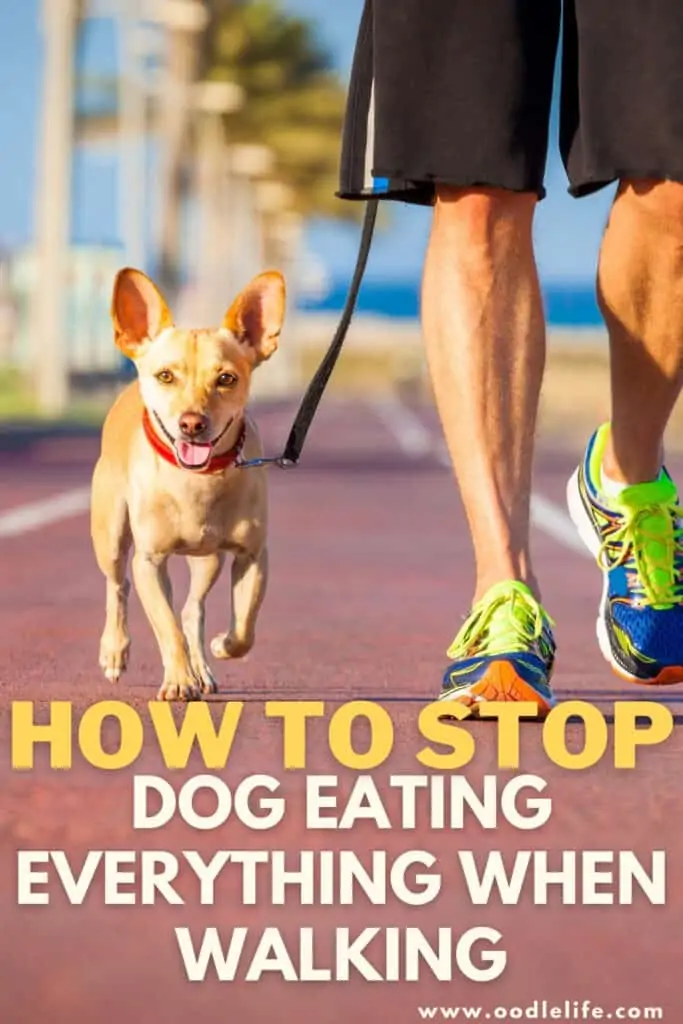
Why Do Dogs Eat Everything on Walks?
Taking your dogs for walks represents an excellent way to keep them healthy and happy. But dogs, especially pups, display a tendency to eat garbage or poop if you fail to keep an eye on them at all times.
Your dog may find unusual stuff that can harm its health. Understanding what causes this scavenging habit can go a long way toward protecting your pet from poisoning or intestinal blockages. Below, we discuss the reasons why dogs eat everything on walks.
Pica
Pica is a canine condition that causes dogs to ingest inedible objects. Pica may arise because of depression, boredom, or a need for extra attention. Dogs with pica display an obsession with eating dirt, rocks, toys, sand, sticks, and other indigestible objects.
Missing nutrients in your pet’s diet, as well as medical problems like hyperthyroidism or parasitic infections, can also cause pica. All dogs instinctively gauge their overall health and may try to forage for the missing nutrients themselves.
We recommend checking your dog food label to see its nutritional content. Putting your dog on a raw diet or cooking the dog food yourself can help.
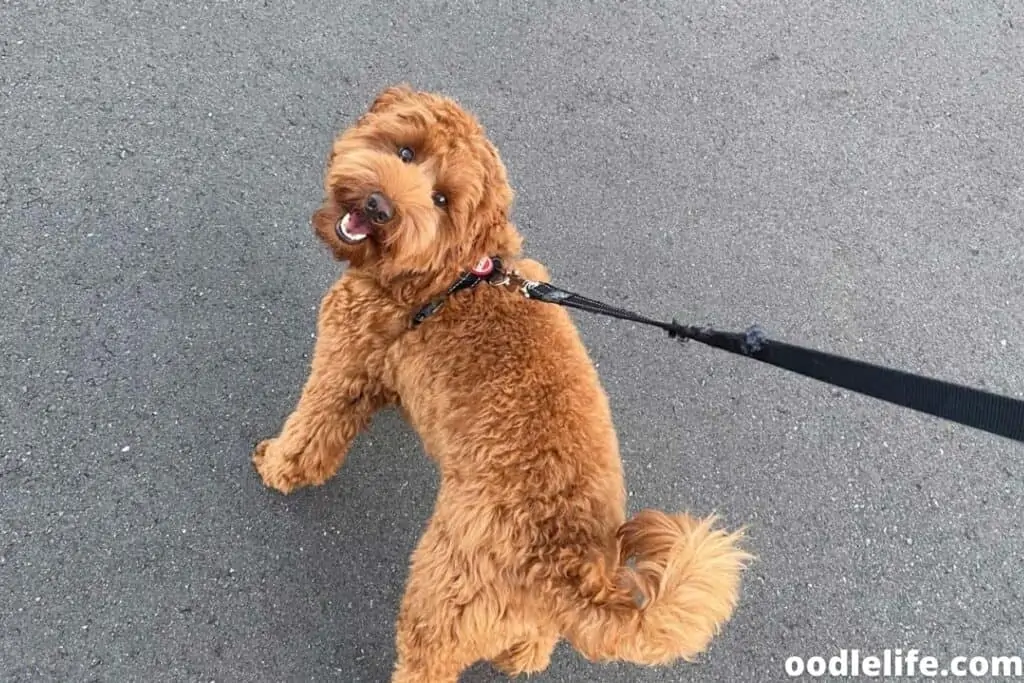
Genetics
The dog (Canis familiaris) shares a common ancestry with the gray wolf (Canis lupus), indicating that dogs engaged in hunting prey before humans domesticated them.
The gradual evolution of dogs shows an increased emphasis on scavenging rather than hunting for food. Both behaviors still exist in their DNA, which explains why they feel the need to do it even when healthy food is readily available.
Grazing
Studies show that about 80% of dogs occasionally eat grass or similar plants. It allows them to make up for missing vitamins in their diet. Sometimes, your dog may eat grass simply because it likes the taste of it.
Grazing does not pose a threat in itself. However, it may turn problematic if your dog grazes on plants that prove poisonous.
Poop Issues
You may notice your dog demonstrates a proclivity for eating the feces of other animals. Because of the undigested nutrients in animal waste, your dog’s natural tendency to look for all available foodstuffs causes this bizarre behavior.
These animal droppings may also contain parasites that can harm your dog. On a positive note, your dog may outgrow this horrible habit as it grows older.
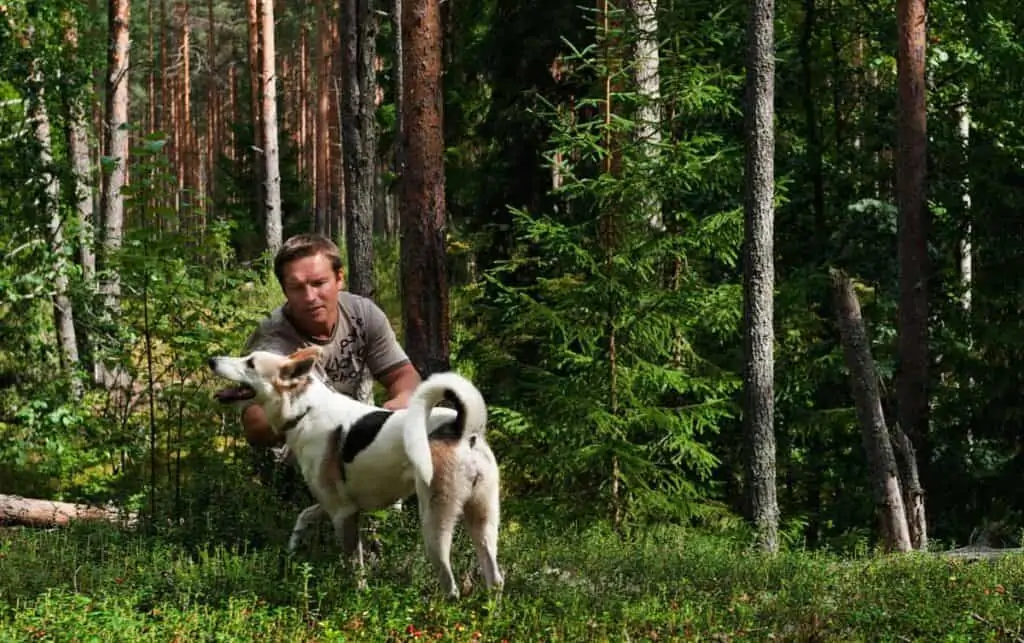
Dirt or Rock Attraction
Your dog may chew rocks or enjoy the taste of dirt. It usually happens because of its keen sense of smell and instinct to give and receive biochemical messages. For example, another animal marking its territory with urine can set your dog on the path to eating dirt.
Ingesting too much dirt can cause digestive system obstructions, although small amounts should not worry you.
Dogs also chew rocks at times. We recommend discouraging this habit because your dog can choke on the rock or damage its teeth. Chew toys represent a possible solution to tackle this problem.
Boredom
The more exercise a dog gets, the happier it remains. Boredom can arise in dogs because of inactivity. Sometimes, a bored dog may entertain itself by eating indigestible objects. Take your dog on daily walks and see that it receives enough exercise to stop it from eating inedible things.
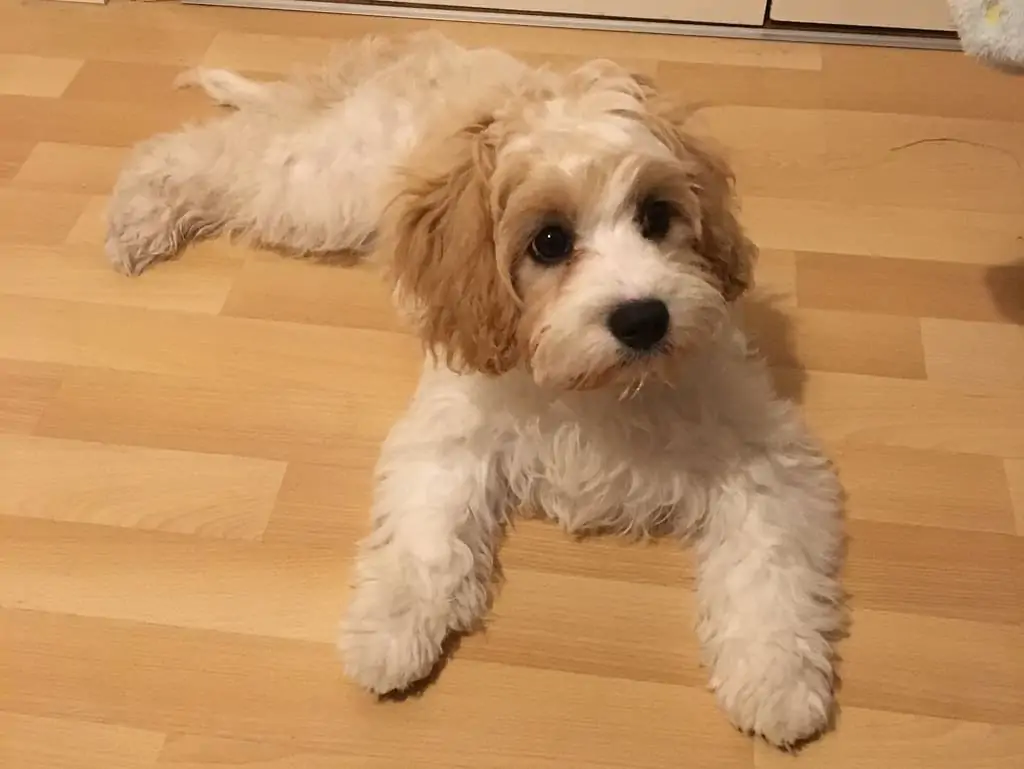
Photo Tim Walker CC
Tips to Stop Your Dog Eating Everything on Walks
Understanding why your dog eats everything on walks is necessary to prevent your dog from scavenging. Now, let’s look at how you can stop this behavior in your dog.
Proper Training
Train your dog to follow commands at an early age. The “leave it” command can stop your dog from scavenging for unhealthy objects later in life. Start training your dog to obey this command in controlled environments, preferably at home. You can slowly teach it to obey this command when taking it out on walks.
Learn What Your Dog Likes
Sometimes, dogs display extreme interest in scavenging and may not listen to your commands. A little knowledge about what your dog likes can help with this problem. Take your dog’s favorite toy or some treats along with you when you take it out on long walks.
Use the treats as a reward for listening to you and behaving in the way you trained it. Make sure you only offer your dog the treats at the right time so that it does not confuse the treat as a reward for scavenging.
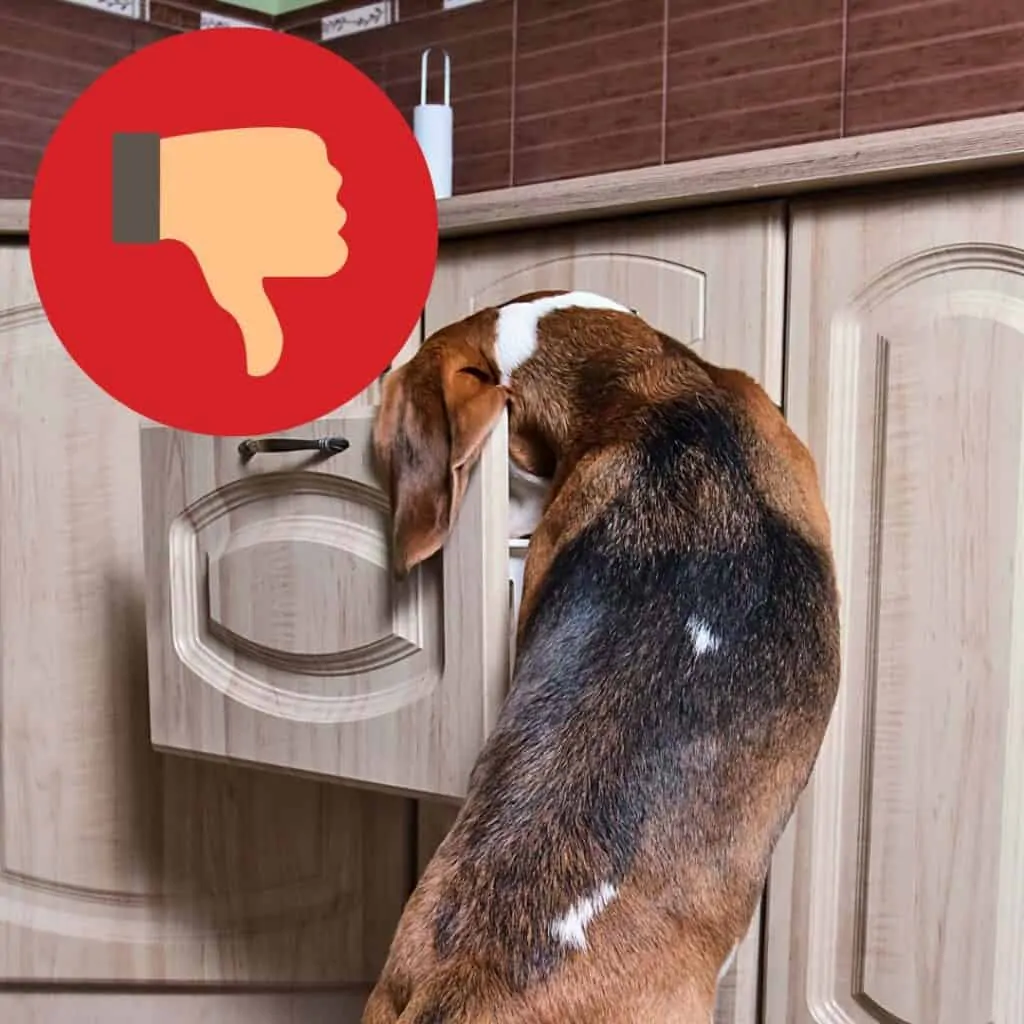
Safe Trash Disposal Practices
Ensure safe disposal of garbage to prevent your dog from ingesting it. Keep outdoor trash cans and garbage bins in areas your dog can not access. Consider placing lids on the cans or storing the trash in a cupboard for indoor garbage.
Positive Reinforcement Training
Train your dog to respond to positive reinforcement. This gentle training method proves effective at stopping your dog from scavenging while strengthening the bond between you and your pet.
Reward your dog for displaying positive behavior. You can see the progress when your dog pays more attention to you than the objects it finds during your walks. Make sure you reward it for resisting the urge to eat anything it finds on the ground.
Regular Health Checks
Pay regular visits to a veterinarian to keep tabs on your pet’s health. Visiting a vet also becomes necessary when it refuses to obey your commands against scavenging. The vet can check for signs of medical issues like pica.
You can talk to the vet about various treatments and training methods if your dog does not display any medical condition. We also recommend talking to the vet about your dog’s diet.
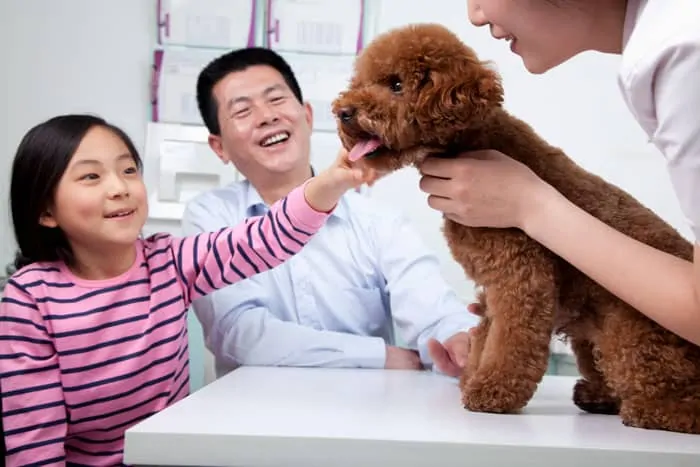
Use Muzzles
Using muzzles can stop your dogs from scavenging, too. Many people frown on muzzle usage because they see it as cruel. The general notion that only dangerous canines wear muzzles also presents a problem. However, muzzles can go a long way toward ensuring your pet’s safety.
Train your dog to wear a muzzle on long walks, especially if it continues to scavenge despite your efforts. Proper muzzle training helps your dog become used to it, ensuring that it stays comfortable while wearing it. Your muzzle also prevents your dog from eating whatever it wants.
Conclusion
Taking your dogs on long walks serves as an excellent way to strengthen your bond. However, it can also bring a little frustration if your dog continues scavenging. We recommend first identifying the cause of the problem before taking steps to counter it. Then, you can enjoy a carefree walk with your canine companion without worrying about what your dog finds.